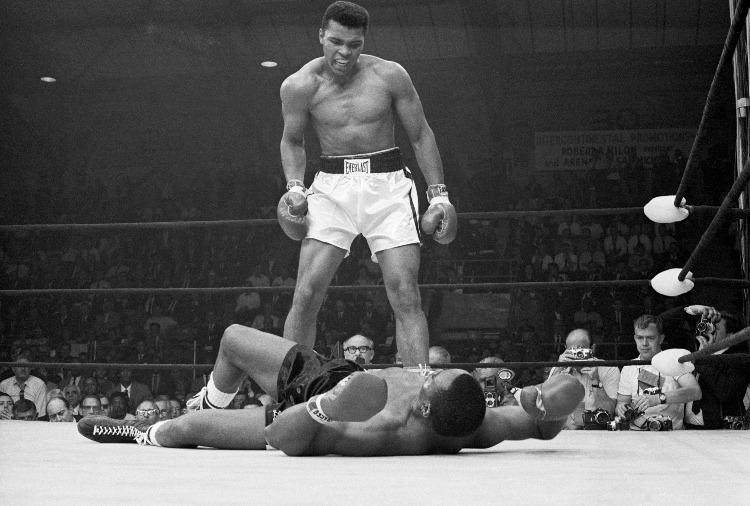Born on Jan. 17, 1942, Muhammad Ali who was originally named Cassius Marcellus Clay, Jr was an icon who inspired millions across the world with his impressive boxing career and his beliefs that transcended the boxing ring. The first fighter to win the world heavyweight championship on three separate occasions; he successfully defended this title 19 times. Like today, on Sept. 5, 1960, at the Olympic games in Rome, Ali was a relatively unknown 18-year-old who had a terrific amateur career and was considered the United States’ best hope to win a gold medal in boxing and indeed he won all four of his fights and claimed the gold medal.
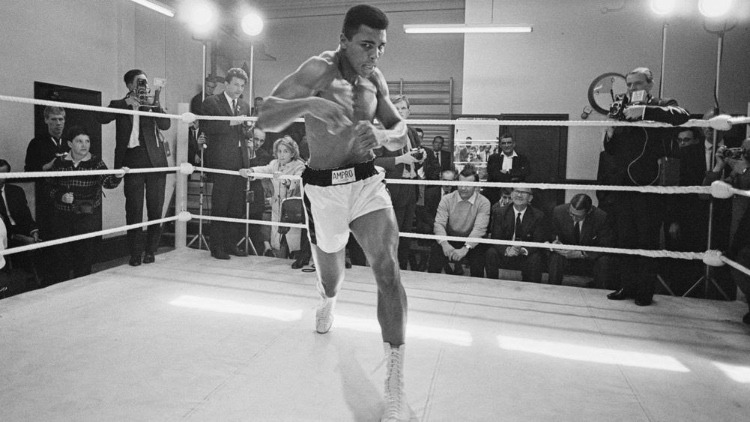
But what was his relationship with the Middle East? In the Arab world, they made the American hero one of their own! Ali was idolized more than ever and his fights evolved into rituals. His supporters would even set their alarm clocks for the early hours to catch a glimpse of this sporting phenomenon.
Due to several invitations from Middle Eastern leaders, Ali was eager to travel to the region. For instance, Ali spent two weeks in Egypt in 1964 after accepting an invitation from the Arab Boxing Federation. During that time, he visited Alexandria, Port Said, Aswan, and the Giza Pyramids. There, he asked to meet with President Gamal Abdel Nasser while he was in Cairo, and the Egyptian leader agreed to his request.
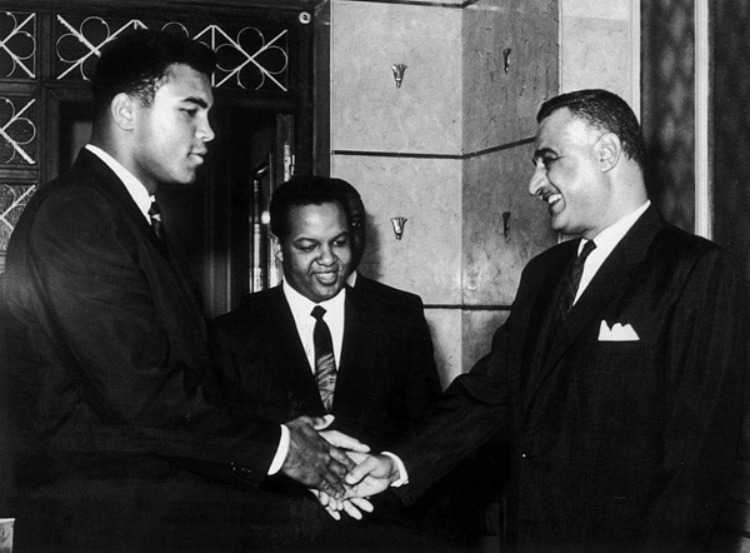
In addition, Ali paid a visit to the Kingdom of Saudi Arabia in 1972. He traveled to the Kingdom for many years after converting to Islam in 1964. There he’d go for Hajj and Umrah mainly, but he got to meet with King Salman and King Faisal as well as tour a variety of cultural and athletic venues.
Yet we have to acknowledge that Ali was amongst the very few athletes who were able to quickly go above the sport, and create a sense of hope and inspiration that he offered outside the ring and earned the three times world champion the eternal love of Arab audiences.
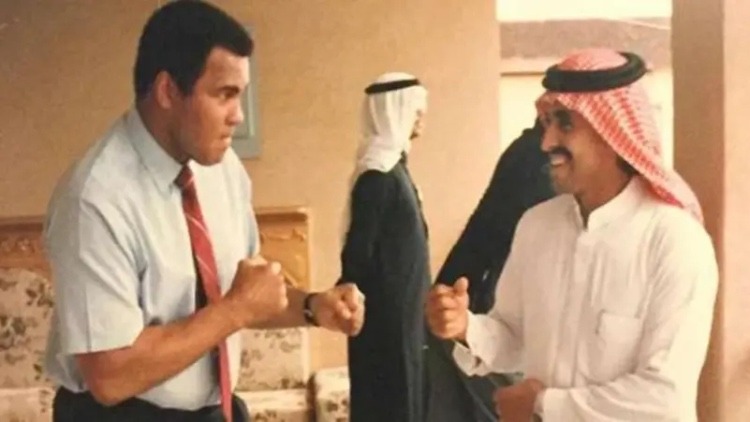
Let us remind you that his conversion to Islam won him the support of many across the region. Then three years later, he refused to serve in the U.S. Army in Vietnam. These two incidents made him become a more popular and influential figure around the globe.
Mohammed Omari, an Islamic law professor at Northern Jordan’s Al Albayt University told AP News that “Muslims wanted a hero to represent them, and Ali was the only Muslim champion… No other Muslim athlete managed to achieve what Ali did….thus, he was a symbol for Muslims.”
Ali used boxing as a platform to promote Islam as a peaceful religion. In defence of his faith, he became a visible symbol of resistance against Islamophobia, according to The Washington Post, he would bow his head, close his eyes, and turn his gloves upward before each of his fights in order to pray. Moreover, most Americans protested when he adopted his “original name,” Muhammad Ali as It sounded too foreign and subversive in a nation where Muslims were always viewed with suspicion.
He was also met with a lot of discrimination incidents back in the states primarily due to his skin color, yet he was always able to diffuse such situations with wise words as he always talked about peace and how his teachings are intended to spread peace among communities who cannot see past skin color and religious affiliations.
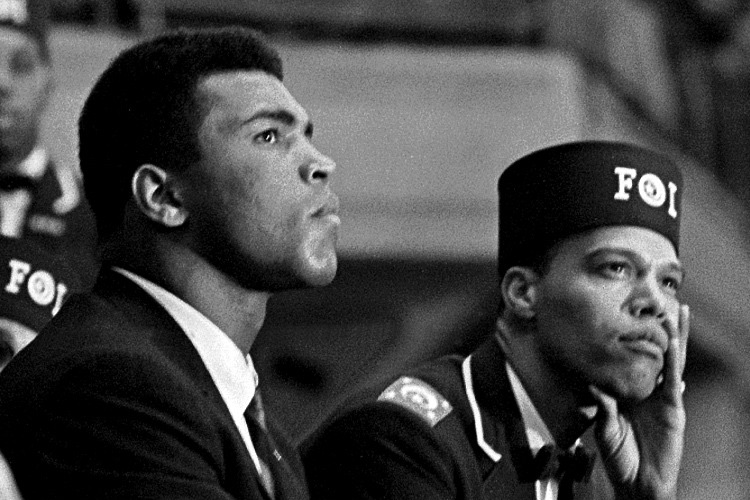
On June 3, 2016, Ali passed away following a battle with Parkinson’s disease at 74. He undoubtedly had a career that had a big influence on many regions, but it ended when he retired in 1981. He is now undisputedly the most popular athlete and cultural icon the Arab and larger Muslim world has ever known.


